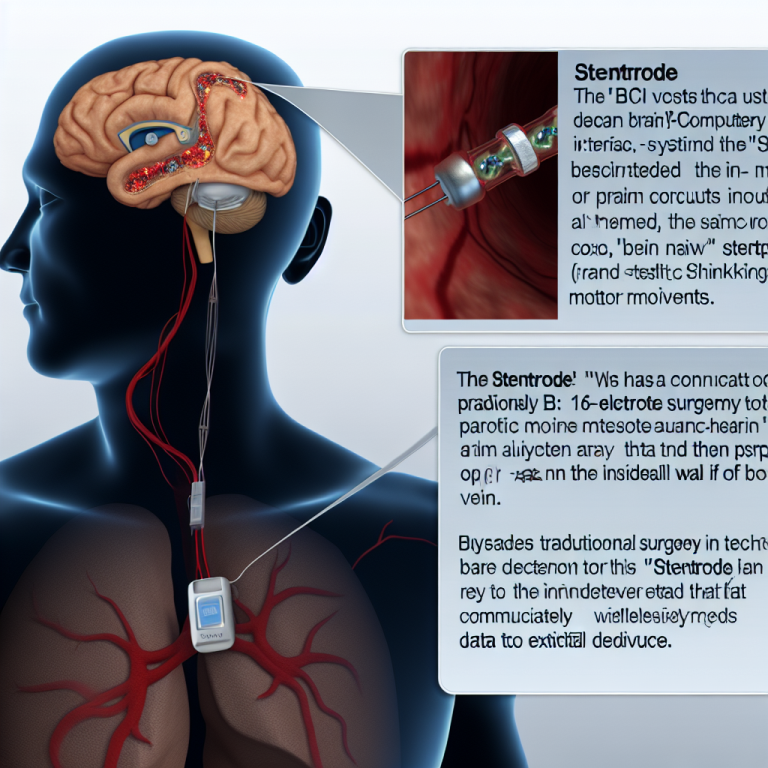In the fast-paced world of brain-computer interface (BCI) technology, one company is making significant strides towards bringing this groundbreaking innovation to the market. Synchron, a brain-implant company, has been quietly leading the race to develop fully implantable BCI systems that could potentially change the lives of individuals with severe paralysis.
For more than half a year, six people have been living with sensors implanted in the blood vessels of their brains, allowing them to communicate directly with computers. These participants, who are severely paralyzed, are part of a study that could mark a turning point in BCI technology. While other BCI implants typically involve wires protruding from the head, Synchron’s system is fully implantable and at-home.
The process of implanting Synchron’s system is innovative and minimally invasive. Instead of requiring open brain surgery, the electrodes are delivered via a stent that is inserted through the jugular vein in the neck and snaked to a blood vessel near the brain’s motor cortex. This method eliminates the need for more invasive procedures, making it an attractive option for potential users.
Once implanted, the 16-electrode array, known as Stentrode, records electrical activity from the nearby brain tissue. This data is wirelessly transmitted to an external device, allowing the user to communicate with a computer using their thoughts. For individuals with severe paralysis, this technology could provide a valuable means of communication and access to digital health services without the need to move a muscle.
Synchron’s system is currently limited to basic computer commands such as clicks and scrolling functions. However, the company is working towards capturing more complex signals from the brain, including decoding speech. CEO Tom Oxley explains that their research focuses on recording signals from a larger patch of the cortex to decode movements and speech more accurately.
While Synchron is leading the way in developing fully implantable BCI systems, they face competition from companies like Elon Musk’s Neuralink and Precision Neuroscience. Neuralink’s BCI features 1,024 electrodes distributed across ultra-thin threads that must be surgically implanted with a custom robot. Meanwhile, Precision Neuroscience’s BCI includes 1,024 electrodes on a flexible film that can be temporarily placed on the surface of the brain.
Despite the competition, Synchron’s unique approach to BCI technology sets them apart in the race to bring this innovation to the market. The company is currently preparing to submit data to the U.S. Food and Drug Administration for review, with hopes of moving forward with larger clinical trials. If successful, Synchron’s BCI system could become a game-changer for individuals with severe paralysis, offering them newfound independence and communication capabilities.
Source: https://spectrum.ieee.org/synchron-bci




